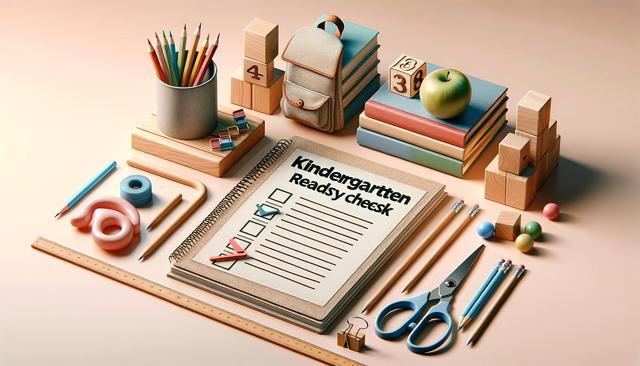
Kindergarten Readiness Checklist: What Every Parent Should Know
Understanding Kindergarten Readiness
Kindergarten readiness refers to the set of skills and behaviors that help children succeed when they begin formal schooling. It includes a range of developmental areas such as emotional, social, physical, and cognitive abilities. While every child develops at their own pace, having a general understanding of what teachers expect can help parents support their child effectively. Readiness doesn’t mean a child has to know how to read or do math before starting school. Instead, it’s about being prepared to participate, follow directions, and engage with peers and adults in a structured environment.
Some common areas assessed in kindergarten readiness include:
- Basic self-care skills like using the restroom independently and dressing appropriately
- Following simple instructions and routines
- Showing interest in books and stories
- Getting along with other children and adults
Understanding these expectations can help parents create a supportive environment at home and identify any areas where their child might need additional encouragement or practice.
Social and Emotional Development
One of the most important aspects of kindergarten readiness is how well a child can interact with others and manage their emotions. Social and emotional development plays a crucial role in how children adjust to a classroom setting, build relationships, and handle transitions. Children entering kindergarten should have some ability to express their feelings appropriately, take turns, and share with others. They should also be able to follow classroom rules and routines with minimal assistance.
Parents can foster these skills by:
- Encouraging playdates and group activities
- Modeling respectful communication and empathy
- Reading books that focus on feelings and relationships
- Setting consistent routines and boundaries at home
These experiences help children feel more confident and secure as they enter a new social environment. A child who is emotionally ready will have a smoother transition into kindergarten and be more open to learning experiences.
Language and Communication Skills
Effective communication is fundamental in a classroom setting. Children don’t need to speak perfectly, but they should be able to express their needs, ask questions, and understand basic instructions. Language and communication skills are closely linked to academic success, as they influence a child’s ability to participate in group discussions, follow directions, and build relationships.
To support language development, parents can:
- Engage in daily conversations with their child
- Read aloud together and discuss the stories
- Ask open-ended questions to encourage critical thinking
- Introduce new vocabulary through play and exploration
Providing a language-rich environment helps children expand their vocabulary and builds the confidence they need to interact effectively in school settings.
Basic Academic Concepts
Although academic knowledge is not the sole focus of kindergarten readiness, familiarity with basic concepts can help children start the year with confidence. These include knowledge of letters, numbers, shapes, and colors. Children don’t need to master all these areas, but showing curiosity and some understanding can ease the transition into more formal learning.
Parents can introduce academic skills in playful ways:
- Singing alphabet and counting songs
- Using puzzles and games that teach shapes and colors
- Practicing name recognition and writing
- Exploring books with rhyming words and simple sentences
Early exposure to these concepts allows children to develop pre-literacy and pre-math skills that will be built upon in kindergarten. Making learning fun and interactive keeps children engaged and motivated.
Physical Skills and Independence
Physical development is another key area of kindergarten readiness. This includes both gross motor skills, such as running and jumping, and fine motor skills, like holding a pencil or using scissors. In addition, children should be able to manage basic tasks independently, such as opening lunch containers and hanging up their backpack. These abilities contribute to a child’s overall confidence and ability to participate fully in the classroom.
Ways to encourage physical readiness include:
- Allowing children to dress and feed themselves
- Practicing cutting, drawing, and writing activities
- Playing outdoor games that involve coordination and movement
- Encouraging responsibility for personal belongings
When children feel competent in these areas, they are more likely to approach new tasks with enthusiasm and resilience. Building independence at home sets a strong foundation for success in school.
Conclusion: Supporting a Smooth Transition
Preparing for kindergarten doesn’t have to be overwhelming. By focusing on the whole child—socially, emotionally, physically, and cognitively—parents can help create a positive and supportive path toward school readiness. Remember, each child is unique, and readiness is not about perfection but about being prepared to grow, learn, and thrive in a new environment. Taking the time to nurture these skills at home can make the kindergarten experience a successful and enjoyable new chapter for both children and their families.